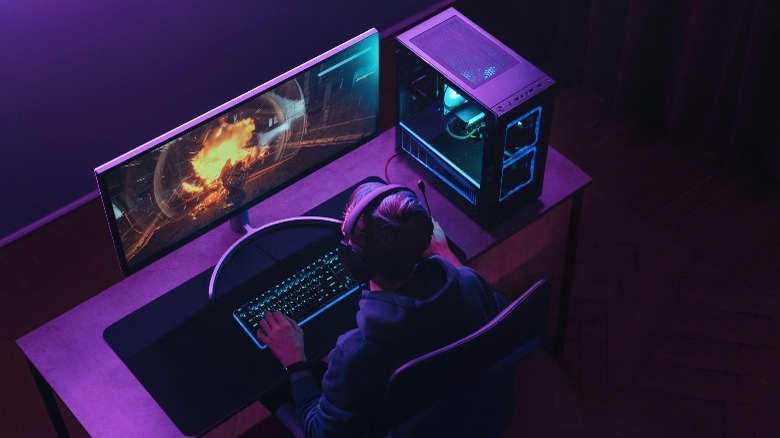Your PC works hard when you use it. Tasks like gaming, editing, or even browsing can make it heat up. Inside, small parts do big jobs, and all that effort makes heat. If your PC gets too hot, it may slow down or stop working. That’s why it’s important to keep it cool.
Keep It Clean
Dust is your PC’s enemy. It blocks fans and covers parts, stopping air from flowing. This can make your computer very hot. Use a soft cloth and a can of air to clean it. Blow out the dust from fans, vents, and the case. Do this every few weeks for best results.
Let It Breathe
Your PC needs space. Don’t keep it in a tight spot like a closed cabinet. Put it where air can move around it. Avoid putting it on soft places like a bed or couch. These can block airflow and trap heat.
Check the Fans
Fans help push hot air out. Make sure they work well. If they are slow or noisy, they may be dirty or broken. Clean them first. If that doesn’t help, you may need to replace them. A new fan is cheap and easy to install.
Use a Cooling Pad
If you use a laptop, try a cooling pad. It sits under your laptop and has fans to blow air upwards. Plug it into a USB port and let it do its job. It can lower your laptop’s heat by a lot.
Manage Background Apps
Too many apps open at once can make your PC hot. Close any apps you’re not using. Some apps run in the background without you knowing. Go to your task manager and stop the ones you don’t need. This gives your PC a break.
Update Your Software
Sometimes your PC gets hot because it’s working too hard. Software updates can fix bugs and help it run better. Update your drivers, apps, and your system often. This can lower heat and boost speed.
Play Smart
If you like to game & use heavy apps or website like https://www.stellarspins.fun/en/online-pokies , keep sessions short. Take breaks so your PC can cool down. Also, use “performance” or “power saver” settings to reduce the strain. It helps a lot, especially if your room is already warm.
Change the Thermal Paste
Thermal paste sits between your PC’s processor and its cooler. Over time, it dries out. If you’re a bit tech-savvy, you can change it. New paste helps transfer heat better, keeping your CPU cooler. If you’re unsure, ask someone to help.
Try Software to Control Heat
There are apps that help control fan speed and temperature. These tools show you how hot your PC is and let you tweak settings. Some even warn you if your PC gets too hot. Just be sure to use trusted software.
Adjust Power Settings
In your system settings, you can lower how much power your PC uses. Pick a power plan that balances performance and energy use. This helps keep heat down without slowing things too much. Many PCs have this built in.
Raise the Case
If your PC sits flat, it may trap heat. Try lifting it a bit. You can use rubber feet or even bottle caps. Raising the case helps air flow under it. That tiny change can make a big difference.
Watch the Room Temperature
Your PC’s heat is tied to your room’s heat. If your room is warm, your PC works harder to stay cool. Use a fan or air conditioner when needed. Even opening a window can help.
Avoid Overclocking
Overclocking makes your PC run faster than normal. But it also makes it hotter. If you’ve overclocked, turn it off if heat is a problem. Most users don’t need it anyway.
Use a Better Case
If you’re building a PC, choose a case with good airflow. Look for one with more vents or space for extra fans. A better case can stop heat before it starts.
Organize the Cables
Messy cables block airflow inside your PC. Tidy them up using ties or clips. Keep them out of the way so air can move freely. It’s a small task that helps a lot.
Closing Words
Heat is one of your PC’s biggest enemies. But keeping it cool is easy. Clean it often. Use fans and pads. Watch the apps you run. Try software tools and small tweaks. If you do these things, your PC will run better and last longer. And you’ll avoid sudden slowdowns or shutdowns.

